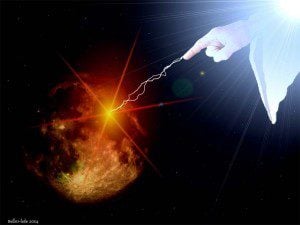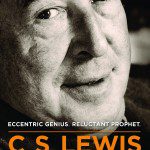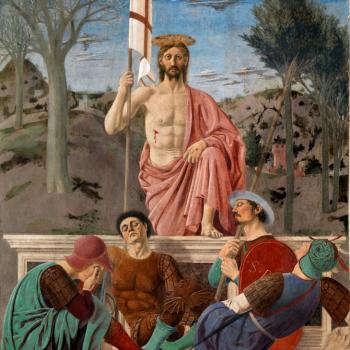 Lectionary Reflections for March 3, 2013
Lectionary Reflections for March 3, 2013
Isaiah 55:1-9; Psalm 63:1-8; I Corinthians 10:1-13; Luke 13:1-9
An Ambiguity in God?
Today’s readings join concern for divine sustenance with the reality of suffering and tragedy. Jesus recognizes the ubiquity and apparent arbitrariness of suffering in his reflections on the Tower of Siloam, Paul talks about divine punishment for infidelity, Psalm 63 describes God’s fidelity and ability to quench our spiritual thirsts, and Isaiah speaks of the gracefulness of God’s providence. There is a hint of scarcity and conflict in the background of each of these passages that raises questions, especially in the gospel and epistle readings, about a divine ambiguity. God is graceful, but should we watch our step around God? What happens in the divine-human relationship when we step out of line, raise questions, or – to use the words of a child’s game – “step on a crack?” Will divine fury be unleashed on us and our loved ones? Is there an ambiguity in God? Can grace and fury both characterize God’s experience?
In Luke 13, Jesus speaks of the accidental nature of experiencing tragedy and injustice. Religious commitment, spiritual maturity, and ethnicity had nothing to do with the fall of the Tower of Siloam and Pilate’s violence. It was a matter of poor construction and political violence committed against persons who were at the wrong place at the wrong time. Faithfulness to God does not immunize us from life’s pain, or insure that we get the most desirable spouse, position, or parking lot. The sun shines and the rain falls on the just and the unjust. Our behaviors may put us at risk, but they are not all-determining. We cannot boast of the relationship between our success and our righteousness nor can we blame the victim for her or his illness. Stuff happens! Although God is involved in all events, seeking wholeness in all events, even God can’t control the outcome of all things, Jesus implies. Such a conviction is at work in Jesus response to the question, “Who sinned, this man or his parents that he was born blind?” (John 9:1-12) There is free play in the universe to which God must adapt. Providence is gentle and relational, and not coercive and unilateral.
This passage is bookended by threat and grace. Unless you repent, you will perish as well. While I don’t think Jesus is advocating linear cause and effect causality in the moral realm. His comments are murky enough to raise concerns: will our failure to change lead to divine punishment? If so, when and where will these rewards and punishment occur, since the unrighteous often prosper and the faithful fail? Second chances don’t go on forever. Eventually, we reap what we sow and our decisions have consequences. I am especially conscious of how we are sleepwalking toward disaster in terms of responding to global climate change, balancing budgetary responsibility and care for the vulnerable and elderly, and addressing global poverty, slavery, and instability.
The passage ends with the proclamation that the divine gardener gives us second chances to be fruitful, that is, to align ourselves with God’s way before a day of reckoning occurs.
Paul’s words give little comfort, both then and now. God strikes people down, sends snakes to bite us, and punishes every misdeed directly and without mercy. Even complaining is punished. Subservience and unquestioning faith is counseled here, lest God annihilate us. God has no patience with doubt, questioning, and complaining. There acts led to terrible consequences from the hand of God; let that be a lesson to you. All are tested in life, but God is at work to give us courage to face life’s tests.
Does God “test” us or are the tests of life arbitrary and accidental? Paul is unclear on this point. If God intentionally tests us, the result of failing the test is often tragic for us and those we love. Would God test our faith with the diagnosis of cancer or the death of a child? If so, this says more about the type of God we are dealing with than our response to the testing.
Rick Warren and others would have a field day with this passage. It implies God’s sovereignty at work in our failures. They are really tests to determine how we will respond. Success eventually to God’s “elect,” from their perspective, but it often comes attached to life-threatening cancer, the death of child, or relational abuse! Spending the whole sermon addressing divine tests of humankind, that is, whether or not this is an appropriate theological doctrine, might be an interesting homiletical “test” since the notion of divine testing is buried deep down in many Christians’ theologies and comes out in times of physical and economic duress. (For a response to Warren, see Bruce Epperly, Holy Adventure: 41 Days of Audacious Living.)
Isaiah proclaims the grace of God given to us whether or not we deserve it. The hungry will be fed and the thirsty refreshed freely and graciously and without cost. God’s abundance is intended for our well-being. The passage concludes with the statement: “For my thoughts are not your thoughts, nor are your ways my ways, says the LORD. For as the heavens are higher than the earth, so are my ways higher than your ways and my thoughts than your thoughts.”
This passage relates to God unfathomable grace, not to the inscrutable mystery of divine sovereignty. God’s inclusiveness is beyond our comprehension: God loves the vulnerable as well as the well-heeled, the weak as well as the powerful, the sinful as well as the righteousness. Our love is a shadow of God’s love for us. We are limited, but God’s love elects all creation and God’s providence heals all who are broken.
The Psalmist’s thirst for God is grounded in God’s abiding care. God has provided us with comfort and healing and even when God appears to be absent, we can count on God’s abiding care, regardless of life’s circumstances. In the spirit of the poem, “Footprints,” God’s care may be most active when we most doubt its presence. In the darkness, there is a light luring us forward even though we may not see it.
This is a wonderfully complex group of passages for preacher and congregant alike. Quick and easy theology and oft-spoken shibboleths won’t do. We need to raise questions about our understanding of God and God’s intention for our lives. They are present whether we address them or not, and good theology places our doubts, questions, and complaints in a crucible where they can be entertained in safety and without fear of reprisal from God or our companions.

















